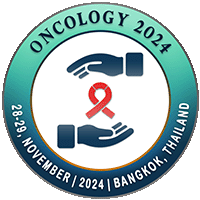
Arshad A. Pandith
Sher-I-Kashmir Institute of Medical Sciences , IndiaTitle: Genotypic and phenotypic influence of TPMT genetic variations impact the chemotherapeutic dosage of 6-MP to effect the outcome of acute lymphoblastic leukemia (ALL)
Abstract
The genotypic variations and subsequent deranged phenotypic expression of thiopurine methyltransferase (TPMT) can alter the inactivation of 6-mercaptopurine (6-MP), used in the treatment of acute lymphoblastic leukemia (ALL), to cause accumulation of its metabolite thioguanine nucleotides (TGN) that results in toxicity, relapse and influence outcome. Overall 146 confirmed ALL patients were genotyped for TPMT variants and TPMT enzymatic concentrations/activity and phase B erythrocyte and plasma 6-MP and 6-TGN was analyzed HPLC/LCMS.
Only TPMT*2 and *3C genotype were found in heterozygous conditions with a frequency of 16.0% and 9.3% respectively. Significantly toxicity was shown in 40% and 18% patients, with TPMT *1/*2 and *1/*3C respectively (p<0.05). Patients that carried either of the TPMT variants presented significantly with more relapse than wild type (p<0.05). The mean 6-MP and 6-TGN concentration in TPMT*1/*2 and *1/*3 patients was significantly 2-fold higher than wild type (p<0.001). TPMT enzyme concentration was comparatively less in TPMT*1/*2 and *1/*3C carriers than wild type p<0.05). Overall higher concentration of 6-MP were found in patients with toxicity (p=0.001). Kaplan–Meier (KM) analysis revealed patients heterozygous for TPMT had significantly lower DFS and OS than wild type (log rank p<0.05). Multivariate analysis revealed combined TPMT carriers *2/*3 act as independent prognostic markers in ALL patients that exhibited DFS and OS with significantly higher hazard ratio (H.R) of >3 and 2.5 respectively (p=0.0001).
Toxicity was significant in TPMT variant carriers that resulted in interruptions and subsequent relapse. High TPMT variations in ALL patients necessitate its pre emptive status before 6-MP therapy.
Biography
TBA

